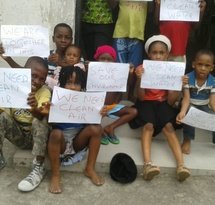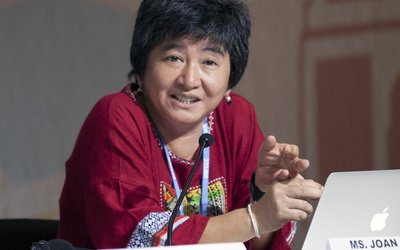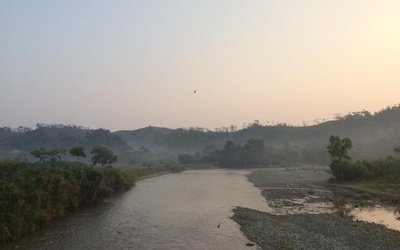
Communities in the Niger Delta have been affected by air and water pollution due to Shell's activities for decades. This year, at Royal Dutch Shell's annual meeting, Kebetkache Women's Resource and Development Centre held Shell accountable for the consequences of their activities. Clean-up of oil spillages and ending gas flaring is becoming even more urgent in the fight against COVID-19, in which clean water is crucial to prevent the spread of the virus.

We congratulate Joan Carling, member of the permanent commission on indigenous peoples of the UN, for having received the Lifetime Achievement Award as 'Champion of the Earth' by the UN Environment! This is the UN's highest environmental honor, given to six of the world's most outstanding environmental change makers once a year.
The Mandalika International Street Circuit is a street circuit in the resort of Mandalika in Central Lombok in West Nusa Tenggara Province. The project, mainly intended to attract tourists, is largely financed by the Asian Infrastructure Investment Bank (AIIB).

After a complaint filed by women's groups from Ixquisis, Guatemala, the Interamerican Development Bank (IDB) has started an investigation on several policy violations, amongst which the Gender Equality policy. This is a unique chance to create a precedent, because complaints on the IDB's gender policy are very rare. The women from Ixquisis are fighting for their rights with support of the Global Alliance for Green and Gender Action (GAGGA).

The fifth session of our five part series on women's rights and climate finance, Experiences and Perspectives of Women Engaging in Climate Finance, shared the insights of three activists who have been serving as GCF Monitors as part of the "Women Demand 'Gender-Just' Climate Finance" initiative. They spoke about their processes of learning about climate finance and connecting with others to monitor climate finance in their communities and regions, discussed the value they have found in this work, and answered questions from webinar participants.

The population of the informal settlement Masakhane, South Africa is highly affected by the pollution and environmental damage caused by the the coal-fired Duvha power station. Before the mining and power station developments, families had access to and control over the land, even if they did not own it. Farming used to be the main source of livelihood. Today, mining companies and investors own most of the land, and as a direct consequence people have lost a lot of their farming and grazing land. This video shows testimonies of victims and their efforts to turn the tide.

In this video we see Maria Mkhatswa, who is claiming the right of her people to have access to clean water, like they had years ago, when the coal mining industry had not yet polluted the whole area. The three part series 'Reality of Mine' gives a voice to women affected by mining in India, Kenya and South Africa. With the support of international NGOs Both ENDS and ActionAid, they have begun to stand up for their rights.

In this video, Trivinia Mwanga Mwamburi from Kenya takes you with in her fight to get the land back which was taken from her because of the expansion of large scale salt mines. The three part series 'Reality of Mine' gives a voice to women affected by mining in India, Kenya and South Africa. With the support of international NGOs Both ENDS and ActionAid, they have begun to stand up for their rights.

The fourth webinar of a five part series on women's rights and climate finance: Strategies for Organizing to Influence, Monitor, and Track Climate Finance (from Global to Local), focused on strategies to engage with various actors to both facilitate and advocate for the meaningful inclusion of the perspectives and experiences of women's groups, affected communities, and other civil society stakeholders in the design and implementation of projects and programs.